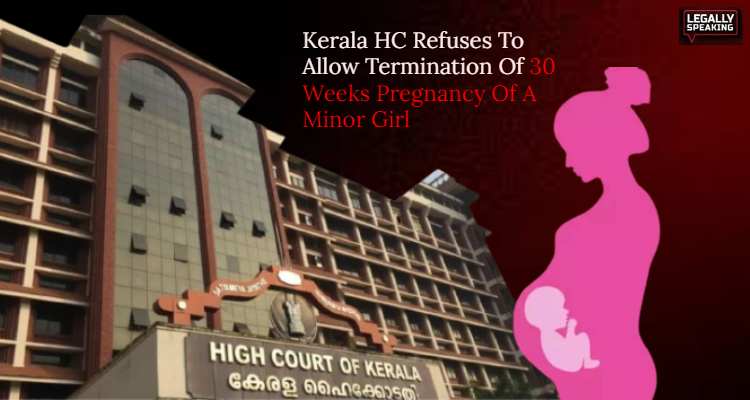
The Kerala High Court has recently refused to allow the medical termination of a 30-week pregnancy of a 14-year-old girl, saying that it was in an advanced stage.
Justice Devan Ramachandran dismissed the plea for aborting the foetus filed by the girl’s mother and said it was not a case where the “victim child’s health was at risk” on account of the pregnancy nor were any lethal foetal abnormalities detected.
Her mother sought medical termination of the pregnancy on the ground that her daughter was raped and the accused was in custody under the provisions of the POCSO Act.
The court noted that even though the records and reports available on file indicate that the victim child had not been forced, “the child was still very young – just 13 – 14 years in age” and what happened to her is “certainly statutory rape”.
The high court observed that the pregnancy was almost in its 9th month and the foetus was gaining weight & fat, getting closer to its eventual birth weight.
The judge stated in his order, “Its vital organs, like the brain and lungs, are almost fully developed, preparing for life outside the womb. Obviously, therefore, this court cannot accede to the request of the petitioner; though I am in full empathy with the condition she and her family are going through, particularly because the victim child is so young.”
Furthermore, the court also took into consideration the medical report which indicated “30 weeks of gestation with a good foetal heart”.
The court stated, “The foetus has, in fact, life with heart rate, and hence, termination of the pregnancy at this stage is impossible, as also untenable.”
It noted that a medical board was also unambiguously of the view that termination is not possible, but that “the baby can only be taken out through a caesarean section – which is to say, that it will be born alive, with a prognosis of a good life in future”.
The court stated that the petitioner mother and her minor daughter need to be offered every protection available in law, to ensure that the latter delivers her baby and is able to take care of her, within the parameters of the statutory & executive realm.
It also directed the jurisdictional Child Protection Officer to visit the victim child on a regular basis and offer the family and her every support for the purpose of continuing the pregnancy and for delivery.




